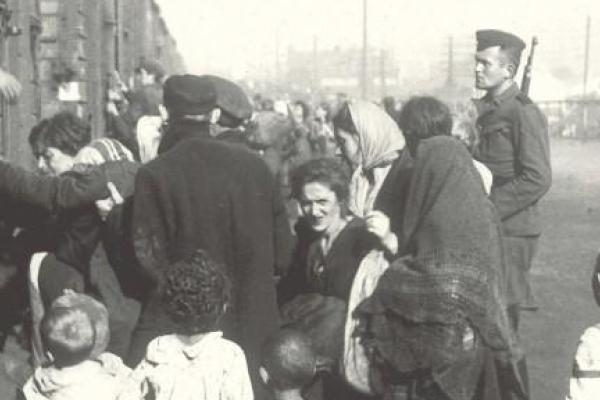Belgian-Dutch Lydia Chagoll escaped Nazi persecution as a Jewish child. After 25 years as a choreographer and dance teacher in the ballet world, she started a successful career as a filmmaker and author.
Her film documentaries ‘In the name of the Führer’ and ‘For a child's smile’ received several awards. In 1999, she was awarded doctor honoris causa at the VUB for her social commitment,including to children's rights. She wrote, among others, ‘In the name of the Führer’ (EPO, 1992) - ‘Bowing in Japanese camps’ - ‘Hirohito, emperor of Japan. A forgotten war criminal?’ - ‘For a child's smile and The future past year’ (EPO, 1998).
Born in 1931 into a Dutch Jewish family. Grew up in Brussels. When the Nazis start their war, the family goes into exile in the Dutch East Indies, which in turn falls into the hands of the Japanese Emperor Hirohito's troops. The family ends up in a Japanese prison camp, and the young Lydia is left with terrible memories. It was an important period in her life, and one that helped to lay the foundations for her later artistic creativity and social activism.
From 1952 to 1973, she was a dancer and choreographer, working for the Brussels Opera, KVS, BRT, RTBF, several foreign television channels, operas and ballet companies.
Child in a Japanese camp, dancer and choreographer, film director, advocate for abused children and prisoners, writer, poet: the many lives of Lydia Chagoll. "Some of them I could have missed like a toothache, but they didn't impoverish me."
"A southern Dutch writer who would not have been out of place among contemporary Jewish writers in the book Levi in the Low Countries." - The Free Reader, January 2000.
"Lydia Chagoll gives a voice and dignity to people who have suffered injustice." - Koen Stassijns, poet
Lydia Chagoll died on 23 June 2020.

